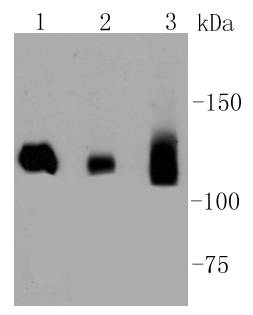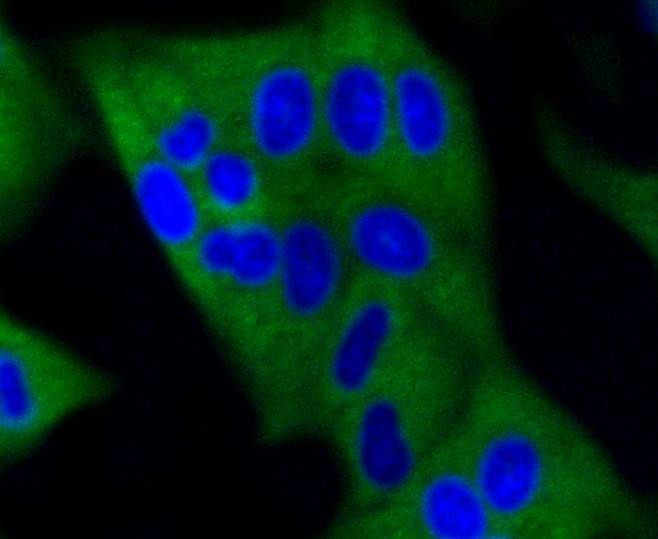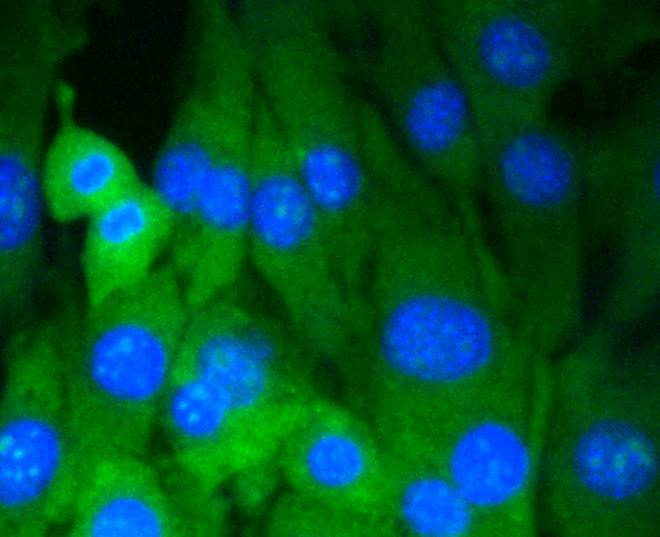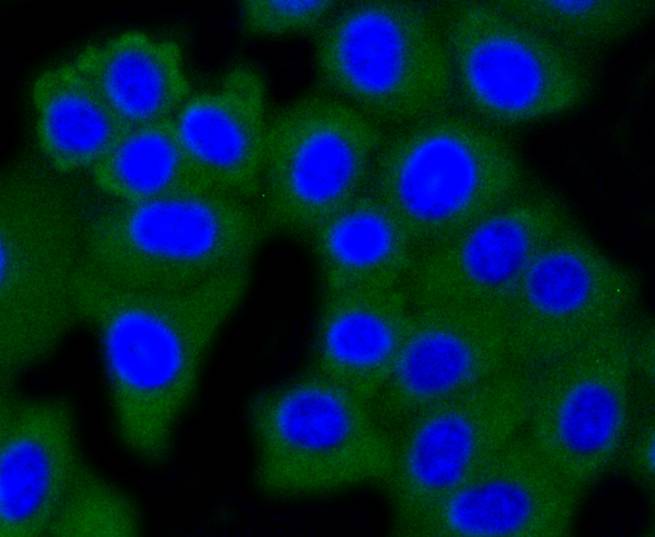Product Detail
Product NameDnmt3a Rabbit mAb
Clone No.ST04-78
Host SpeciesRecombinant Rabbit
ClonalityMonoclonal
PurificationProA affinity purified
ApplicationsWB, ICC/IF
Species ReactivityHu, Rt
Immunogen Descrecombinant protein
ConjugateUnconjugated
Other NamesDNA (cytosine 5) methyltransferase 3 alpha antibody DNA (cytosine 5) methyltransferase 3A antibody DNA (cytosine-5)-methyltransferase 3A antibody DNA cytosine methyltransferase 3A2 antibody DNA methyltransferase 3 alpha antibody DNA methyltransferase 3a antibody DNA methyltransferase HsaIIIA antibody DNA MTase HsaIIIA antibody DNM3A_HUMAN antibody DNMT 3a antibody DNMT antibody Dnmt3a antibody DNMT3A2 antibody M.HsaIIIA antibody MCMT antibody OTTHUMP00000201149 antibody TBRS antibody
Accession NoSwiss-Prot#:Q9Y6K1
Uniprot
Q9Y6K1
Gene ID
1788;
Calculated MW120 kDa
Formulation1*TBS (pH7.4), 1%BSA, 40%Glycerol. Preservative: 0.05% Sodium Azide.
StorageStore at -20˚C
Application Details
WB: 1:1,000-5,000
ICC: 1:50-1:200
Western blot analysis of Dnmt3a on different lysates using anti-Dnmt3a antibody at 1/1,000 dilution. Positive control: Lane 1: Hela Lane 2: Human brain Lane 3: Human heart
ICC staining Dnmt3a in Hela cells (green). The nuclear counter stain is DAPI (blue). Cells were fixed in paraformaldehyde, permeabilised with 0.25% Triton X100/PBS.
ICC staining Dnmt3a in NIH/3T3 cells (green). The nuclear counter stain is DAPI (blue). Cells were fixed in paraformaldehyde, permeabilised with 0.25% Triton X100/PBS.
ICC staining Dnmt3a in HepG2 cells (green). The nuclear counter stain is DAPI (blue). Cells were fixed in paraformaldehyde, permeabilised with 0.25% Triton X100/PBS.
Methylation at the 5'-position of cytosine is the only known naturally occurring covalent modification of the mammalian genome. DNA methylation requires the enzymatic activity of DNA 5-cytosine methyltransferase (Dnmt) proteins, which catalyze the transfer of a methyl group from S-adenosyl methionine to the 5'-position of cytosines residing in the dinucleotide CpG motif, and this methylation results in transcriptional repression of the target gene. The Dnmt enzymes are encoded by independent genes. Dnmt1 is the most abundant, and it preferentially methylates hemimethylated DNA and coordinates gene expression during development. Additional mammalian Dnmt proteins include Dnmt2 and Dnmt3. Dnmt2 lacks the large N-terminal regulator domain of Dnmt1, is expressed at substantially lower levels in adult tissues, and is likely involved in methylating newly integrated retroviral DNA. Dnmt3a and Dnmt3b are encoded by two distinct genes, but both are abundantly expressed in embryonic stem cells, where they also methylate CpG motifs on DNA.
If you have published an article using product 48869, please notify us so that we can cite your literature.






 Yes
Yes



